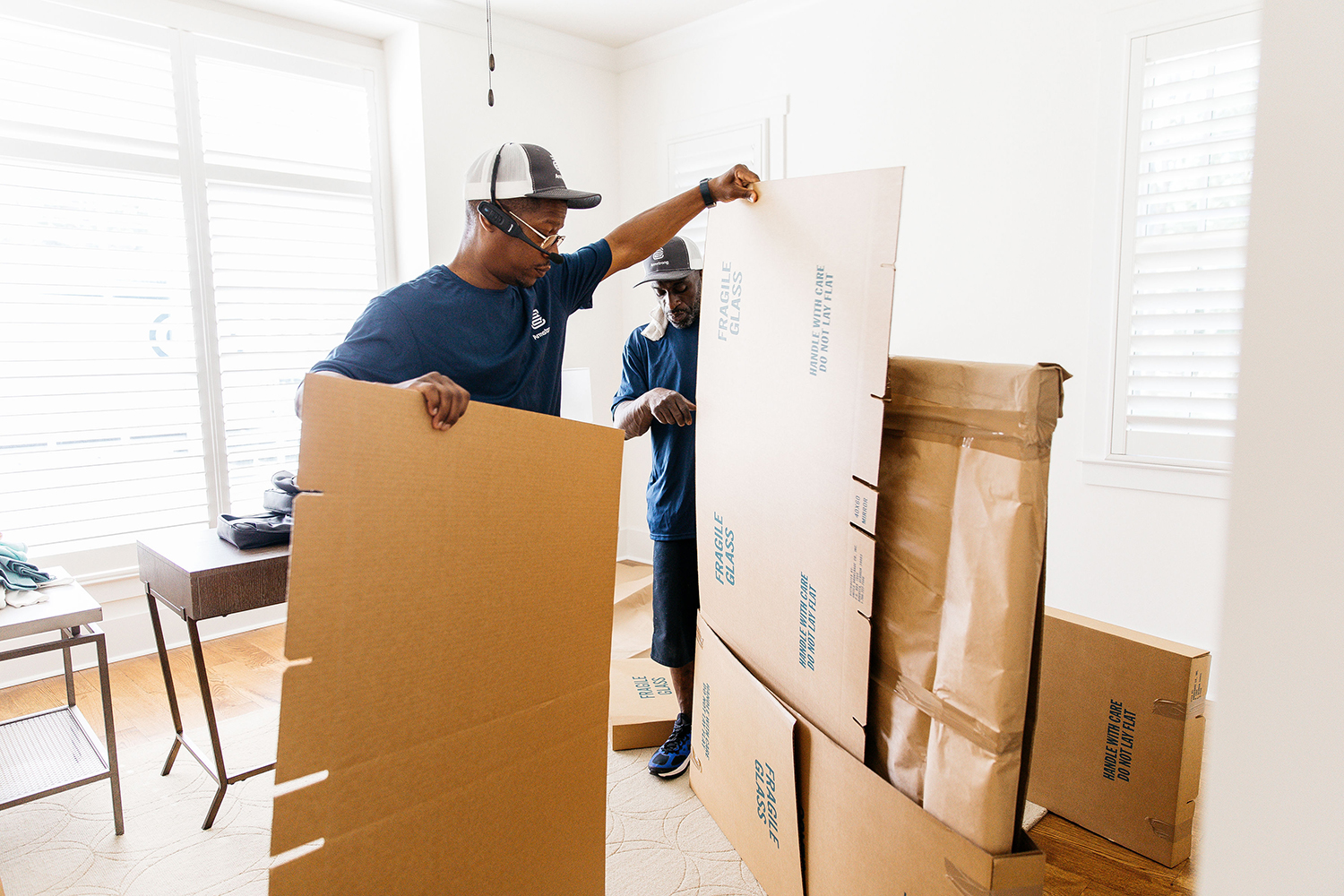20 Essential Questions to Ask Before Hiring Moving Companies

Moving homes can bring a mix of excitement and stress. While the anticipation of a new beginning is thrilling, the logistical nightmare of packing, transporting, and unpacking an entire household is daunting. That’s where hiring movers saves the day.
A good moving company takes the weight off your shoulders (literally and figuratively!), ensuring a seamless transition into your new home. But how do you separate the top-notch companies from the rest? Here are 20 essential questions that will assist you in making an informed decision when hiring movers:
Licensing, Insurance, and Experience
1. Are you licensed and insured?
This is the absolute first question to ask when you hire movers. A reputable moving company will have the required licenses from relevant authorities (such as the Federal Motor Carrier Safety Administration – FMCSA – for interstate moves) and comprehensive insurance coverage.
- Why it matters: Licensing ensures that the moving company operates legally and adheres to industry regulations. Insurance protects you financially in case your belongings are damaged or lost during the move. Hiring unlicensed and uninsured moving services puts you at significant risk.
2. What types of insurance do you offer?
Standard options usually include basic carrier liability and full value protection. Understand the differences and choose the coverage that best suits your needs.
- Why it matters: Basic carrier liability offers minimal coverage, often calculated based on the weight of your belongings. Full value protection provides more comprehensive coverage and financial reimbursement in case items are lost, damaged, or destroyed. Choosing the right insurance is crucial for protecting your possessions during the move.
3. How long have you been in business?
While newer companies may offer good moving services, experienced moving companies are often more reliable, especially with challenging moves.
- Why it matters: Experienced moving companies have a proven track record and a greater understanding of the complexities involved in different types of moves, such as handling rainy moving days. They are more likely to have well-trained staff, specialized equipment, and honed processes to ensure a smoother and less stressful moving experience.
Pricing and Estimates
4. Do you offer a free in-home estimate?
An in-home estimate allows the moving company to assess the scope of your move and provide a more accurate estimate than a phone quote.
- Why it matters: In-home estimates are crucial for getting the most reliable moving cost calculation. Through this system, the moving company can assess the volume of your belongings, potential challenges like stairs or narrow hallways, and any specific items that require special handling – all factors that will influence the final cost.
5. What factors determine the cost of my move?
Be sure to understand if the service charges by the hour, weight, or flat rate and whether any additional factors affect the overall cost of movers.
- Why it matters: Different moving companies use varying pricing models. While hourly rates make sense for smaller, local moves, weight-based cost estimates are common for long-distance moves. Flat rates may apply for specific scenarios. By knowing how the company calculates costs, it helps you compare prices fairly and avoid potential misunderstandings.
6. Do you offer a binding or a not-to-exceed estimate?
A binding estimate is a guaranteed price, while a not-to-exceed estimate means that your final cost won’t go above the quoted figure but might end up being lower.
- Why it matters: A binding estimate offers greater price predictability, protecting you from unexpected cost increases on moving day. A maximum cost estimate provides flexibility, potentially allowing you to pay less if the move goes smoothly and involves less weight than anticipated.
7. Are there any additional fees I should be aware of?
Before proceeding with payment, ask about potential extra fees like packing materials, long carries, stairs, heavy lifting, and moving truck fuel surcharges to avoid unpleasant surprises on moving day.
- Why it matters: Transparent pricing is crucial for budgeting and trust. Hidden fees can significantly increase the overall move cost. Being aware of all potential fees from the start enables you to make informed decisions and compare moving companies effectively.
Reputation and Reliability
8. Can you provide references?
A reliable moving company will happily provide references from satisfied customers. Contact these customers for their feedback on previous experiences.
- Why it matters: References offer direct accounts of a moving company’s services. Speaking to past customers gives you insight into their timeliness, professionalism, handling of belongings, and overall customer services. It helps you gauge whether the company’s claims match reality.
9. What is your Better Business Bureau rating?
Check the company’s rating on the Better Business Bureau (BBB) website for any red flags involving unresolved complaints.
- Why it matters: BBB is a trusted resource for evaluating a company’s track record of customer satisfaction. A good BBB rating indicates that the moving company handles customer complaints responsibly and strives to resolve issues. Additionally, reviews on the BBB website can bring a pattern of negative issues to light.
10. Do you have online reviews?
Customer reviews on independent platforms can offer valuable insights into the moving company’s services and professionalism.
- Why it matters: Reading online reviews on websites like Yelp, Google Reviews, or other specialized platforms often provide candid customer experiences. While it’s important to read both positive and negative reviews (take overly glowing or overly critical reviews with a grain of salt), this approach provides a more comprehensive view of the company’s strengths, weaknesses, and situation management.
Specific Services
11. Do you offer packing services?
If the thought of packing your entire home gives you anxiety, find out if the moving company offers packing and unpacking services.
- Why it matters: Packing is a time-consuming and often stressful aspect of moving. Professional movers have expertise and materials like boxes, bubble wrap, and packing paper for efficient and secure packing to protect your belongings. It’s a relief for those who lack the time, physical ability, or desire to do it themselves.
12. Do you handle the disassembly and reassembly of furniture?
Not all moving companies are equipped to handle furniture assembly, so check if this is a service they offer.
- Why it matters: Many large furniture items need to be disassembled for safe transport, and improper handling can lead to damage. Professional movers have the skills and tools for proper furniture disassembly and reassembly, saving you time and ensuring your furniture’s integrity.
13. Do you have experience with specialty items like pianos, antiques, or pool tables?
If you own valuable or delicate items that require specialty moves, be certain the moving company is equipped to deal with them.
- Why it matters: Specialty items need extra care, knowledge, and sometimes specialized equipment to avoid damage. Hiring movers experienced with your special items minimizes risk and ensures your valuables arrive intact to your new home.
14. Do you offer storage solutions?
If there’s a gap between moving out and moving into your new home, storage options can make your life easier.
- Why it matters: Providing storage solutions during the moving process becomes invaluable in situations involving delays, downsizing, or needing to stage your home for sale. Knowing if the moving company handles storage or partners with storage facilities streamlines the process.
Logistics and Moving Day
15. What is your availability for my preferred moving date?
Popular moving days and peak seasons book up fast. Ensure your chosen moving company can accommodate your timeline.
- Why it matters: Find a moving company whose availability aligns with your own is essential. When moving during busy days, such as peak seasons (summer, weekends, and beginning/end of the month), flexibility with your moving date may be necessary if your first choice is already booked.
16. On moving day, how many movers will be assigned to my move?
This gives you an idea of how swiftly your move will likely progress.
- Why it matters: Knowing the number of movers involved helps you estimate the timeframe of your move. More movers generally mean faster loading/unloading times. This is critical if you have hourly rates or need your belongings moved quickly for logistical reasons.
17. Do you have an inventory system in place?
A clear inventory list avoids discrepancies and disputes regarding your belongings’ whereabouts.
- Why it matters: A detailed inventory system helps track all your belongings, minimizing the risk of loss or mix-ups. By providing accountability, it makes damage claims on broken items or missing items easier to resolve.
18. How do you handle damage claims?
Unfortunately, accidents can happen during the moving process. Therefore, it is key to understand their claims procedure and timeline.
- Why it matters: Knowing the company’s claims process beforehand gives you peace of mind and clear steps to follow if damage occurs. When hiring movers, ask about documentation timelines and how they determine compensation for damaged items.
19. Do you have a dedicated contact person I can reach throughout the process?
Be sure to have a single point of contact to streamline communication and ease potential stress.
- Why it matters: A dedicated contact person reduces frustration from having to explain your situation repeatedly. It ensures someone is consistently aware of your move’s progress and who can quickly address any concerns that arise.
20. Can you provide tips on preparing for the move?
Reputable moving companies often have useful checklists and advice to help you prepare for a successful move.
- Why it matters: Experienced moving companies have a wealth of knowledge to streamline your preparation. They can provide tips on when to pack, advice on how to label items, timelines for decluttering, and other suggestions to ensure an efficient, organized, and smooth moving day.
Remember, moving companies shouldn’t contribute to your move-related stress. By focusing on finding a licensed, insured, and experienced company with a proven record of customer satisfaction, you’re already halfway there. Ask detailed questions about costs, services, and logistics upfront. A clear understanding of the move process minimizes the chance of unpleasant surprises down the road. By choosing the right full-service moving company, you can fully focus on the excitement of a fresh start, not the logistics of getting there.
